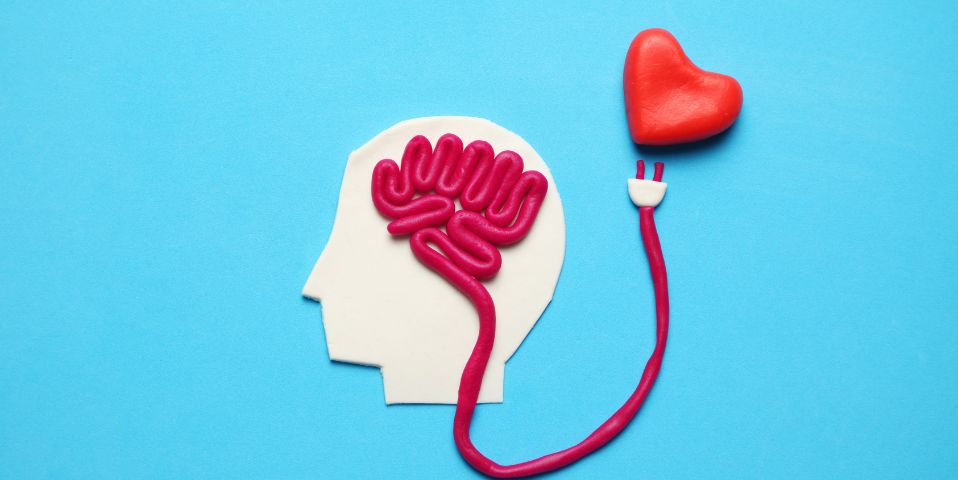Introduction
For decades, heart health and brain health were often treated as separate medical concerns. However, modern research has revealed a strong connection between the two. The brain relies on a healthy cardiovascular system to supply oxygen and nutrients through blood flow. When the heart is not functioning properly, the brain’s health can suffer, leading to an increased risk of cognitive decline, stroke, and dementia. Understanding this link empowers us to make lifestyle and medical choices that benefit both the heart and the brain.
1. How the Heart and Brain Are Connected
The brain is one of the most energy-demanding organs in the body, using about 20% of the body’s oxygen-rich blood. The heart pumps blood through a network of blood vessels, delivering oxygen and nutrients essential for brain cell function.
If the heart cannot pump effectively—due to conditions like heart disease, hypertension, or arrhythmias—brain cells may not receive enough oxygen. Over time, this can impair brain function, affect memory, and increase the risk of stroke or other neurological problems.
2. Heart Conditions That Impact Brain Health
Several cardiovascular problems can directly or indirectly damage the brain:
- Atherosclerosis: Narrowing of blood vessels reduces blood flow to the brain, potentially causing mini-strokes (TIAs) or a full stroke.
- Hypertension (High Blood Pressure): Chronic high blood pressure can damage blood vessel walls, making them more likely to rupture or clot.
- Atrial Fibrillation: Irregular heart rhythms can cause blood clots that travel to the brain, leading to strokes.
- Heart Failure: Reduced pumping efficiency can decrease oxygen supply to brain tissue, affecting cognition.
3. The Risk of Cognitive Decline
Studies have shown that poor cardiovascular health is linked to a higher risk of vascular dementia and Alzheimer’s disease. Vascular dementia occurs when reduced blood flow damages brain tissue. In Alzheimer’s, poor circulation may contribute to the buildup of harmful proteins like beta-amyloid, which disrupt brain function.
Research also suggests that middle-aged adults with high blood pressure, high cholesterol, or obesity have a significantly higher risk of memory loss and dementia later in life.
4. Shared Risk Factors
The same lifestyle factors that contribute to heart disease can also damage the brain. These include:
- Smoking
- Poor diet high in saturated fats and sugars
- Lack of physical activity
- Obesity
- Uncontrolled diabetes
- Chronic stress
Addressing these factors benefits both the cardiovascular and nervous systems.
5. How to Protect Both Heart and Brain
Improving cardiovascular health has direct benefits for cognitive function. Strategies include:
- Regular Exercise: At least 150 minutes of moderate aerobic activity per week improves circulation and strengthens both heart and brain.
- Healthy Diet: A Mediterranean or DASH diet rich in fruits, vegetables, whole grains, lean proteins, and healthy fats supports blood vessel health.
- Blood Pressure Control: Keep blood pressure within a healthy range to prevent damage to brain blood vessels.
- Cholesterol Management: Maintain healthy cholesterol levels to prevent plaque buildup.
- Adequate Sleep: 7–9 hours per night helps both heart recovery and brain function.
- Mental Engagement: Reading, puzzles, learning new skills, and social interaction keep the brain active.
- Stress Reduction: Practices like meditation, deep breathing, and mindfulness protect against heart strain and mental fatigue.
6. The Role of Early Intervention
Many heart-related brain problems develop silently over the years. Regular health check-ups, blood pressure monitoring, and cholesterol testing can help detect and manage risks early. Even small improvements—like quitting smoking or losing excess weight—can significantly lower the chance of stroke or cognitive decline.
Conclusion
The heart and brain are deeply interconnected, sharing the same lifeline—healthy blood flow. Protecting your cardiovascular system is one of the most effective ways to preserve memory, thinking skills, and overall brain health as you age. By embracing heart-healthy habits, you are also investing in a sharper, more resilient mind. Remember, a strong heart often means a stronger brain.
FAQs
Can improving heart health reverse memory problems?
While it may not reverse severe memory loss, improving heart health can slow further decline and enhance brain function.
Is stroke the main link between heart and brain issues?
Stroke is a major connection, but chronic reduced blood flow from heart disease also impacts brain health over time.
How soon can lifestyle changes affect brain health?
Some benefits, like better mood and focus, may appear within weeks, while long-term protection builds over months and years.
Does high cholesterol affect the brain?
Yes, high cholesterol can lead to plaque buildup in arteries, reducing blood supply to the brain and increasing stroke risk.
Are heart medications also good for the brain?
Many medications that control blood pressure or prevent clots indirectly protect the brain, but they should be used as prescribed by a doctor.






